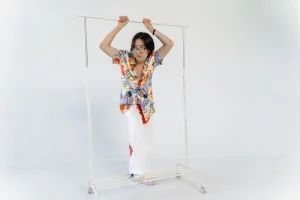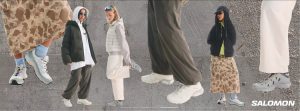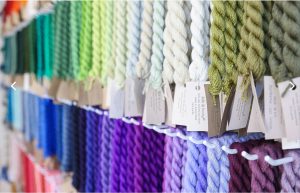
As the fashion industry faces increasing scrutiny over its environmental impact, many brands are stepping up to make sustainability a priority. From using eco-friendly materials to ensuring fair wages for workers, sustainable fashion brands are changing the way we think about style. But which brands are truly leading the charge in sustainability? In this article, we’ll dive into the top sustainable fashion brands that are making a difference and why they deserve your attention.
Why Sustainable Fashion Matters
The Environmental Impact of Fashion
Fashion has long been associated with waste and pollution. The textile industry alone is responsible for a significant portion of global water pollution, while the production of synthetic fabrics contributes to microplastics in our oceans. On top of that, fast fashion has created a culture of overconsumption, where clothes are produced cheaply, worn a few times, and then discarded.
Switching to sustainable fashion practices can help reduce waste, lower carbon emissions, and minimize the harmful impacts on both people and the planet. By supporting sustainable brands, we can help shape a future where style doesn’t come at the cost of the environment.
What Makes a Fashion Brand Sustainable?
Key Characteristics of Sustainable Fashion Brands
A truly sustainable fashion brand doesn’t just make a few token efforts to be “green.” Instead, it integrates sustainability into every aspect of its business—from sourcing materials to ensuring fair labor practices to reducing waste throughout the production process. Let’s take a closer look at what sets these brands apart.
Material Sourcing
Sustainable fashion starts with the materials used in the products. Brands that prioritize eco-friendly fabrics, such as organic cotton, hemp, and recycled polyester, are reducing the environmental burden of textile production. Organic fabrics are grown without the use of harmful pesticides, while recycled materials help reduce waste by giving old materials a new life.
Ethical Labor Practices
Sustainability isn’t just about the environment—it’s also about people. Brands that focus on fair wages, safe working conditions, and respect for workers’ rights are key to a truly sustainable fashion industry. Ethical labor practices ensure that the people who make our clothes are treated with dignity and respect.
How to Identify Sustainable Fashion Brands
Certifications and Labels to Look For
Knowing how to spot sustainable brands can be tricky, but certifications and labels make it easier for consumers to make informed choices. Here are some key certifications to look for when shopping for sustainable fashion.
Fair Trade
Fair Trade certification ensures that the workers involved in producing the garments are paid fairly, work in safe conditions, and have the right to unionize. Brands with Fair Trade certification adhere to high social and environmental standards, ensuring that both people and the planet benefit from the production process.
Organic and Recycled Materials
Sustainable brands often use organic cotton, which is grown without harmful chemicals, or recycled polyester, made from plastic bottles. The Global Organic Textile Standard (GOTS) certification ensures that garments meet strict environmental and social criteria, from production to labeling. Look for labels that highlight the use of organic or recycled materials for a sustainable choice.
Top Sustainable Fashion Brands You Need to Know
Now that we know what makes a brand sustainable, let’s take a look at some of the top names leading the way in sustainable fashion.
Patagonia
Patagonia is often hailed as one of the pioneers of sustainable fashion. The brand uses recycled materials for many of its products and is committed to using only organic cotton. Patagonia also donates a percentage of its profits to environmental causes and is known for its transparent supply chain, where consumers can track the environmental impact of each item.
Stella McCartney
Luxury fashion doesn’t have to be harmful to the planet, and Stella McCartney is proof of that. As one of the first major designers to commit to sustainability, McCartney uses sustainable materials like organic cotton, Tencel, and recycled polyester in her collections. She’s also committed to animal welfare and has never used leather or fur in her designs, making her brand a leader in both fashion and ethics.
Reformation
Reformation makes sustainable fashion stylish and accessible. The brand uses eco-friendly fabrics, including deadstock (unused fabric), organic cotton, and Tencel, and prioritizes low-impact production techniques. Reformation’s mission is to make sustainability a part of mainstream fashion, and with its trendy yet timeless pieces, it’s leading the way in sustainable chic.
Allbirds
Allbirds is a shoe brand that’s all about comfort and sustainability. Known for its wool sneakers, Allbirds uses merino wool, a renewable and biodegradable material, as well as eucalyptus tree fiber and sugarcane-based materials in its shoes. Allbirds’ commitment to reducing its carbon footprint includes carbon offsetting and sustainable packaging.
Everlane
Everlane is revolutionizing fashion transparency by sharing detailed information about its factories, pricing, and environmental impact. The brand uses sustainable materials such as recycled polyester and organic cotton, and its “Radical Transparency” initiative allows consumers to see the real cost behind each product. Everlane’s simple yet stylish designs prove that ethical fashion can be both accessible and fashionable.
The Future of Sustainable Fashion
As sustainability becomes more important to consumers, fashion brands are continually innovating to reduce their environmental footprint. From creating new fabrics made from recycled ocean plastic to developing zero-waste production methods, the future of sustainable fashion looks bright.
Innovations in Fabric Technology
The development of new materials like biodegradable fabrics, plant-based leather alternatives, and fabrics made from algae or mushrooms is helping the industry shift away from traditional, resource-heavy textiles. These innovations allow brands to produce clothing that is both eco-friendly and stylish.
The Impact of Consumer Choices
The most powerful tool consumers have in shaping the future of fashion is their purchasing power. By supporting sustainable brands and making mindful purchases, you send a clear message to the fashion industry that sustainability is a priority. The more demand there is for sustainable fashion, the more brands will have to adapt to meet these expectations.
Conclusion
Sustainable fashion isn’t just a trend; it’s the future of the industry. Brands like Patagonia, Stella McCartney, Reformation, Allbirds, and Everlane are leading the charge in creating stylish clothing that doesn’t come at the expense of the planet. By choosing to support these brands, you’re not only investing in high-quality, timeless pieces—you’re also contributing to a movement that prioritizes the health of the environment and the well-being of workers. Together, we can make fashion a force for good.

FAQs
- How can I find sustainable fashion brands? Look for brands with certifications like Fair Trade, GOTS, or those that use recycled or organic materials. Researching the brand’s practices and values can also help identify sustainable companies.
- Are sustainable fashion brands more expensive? While sustainable fashion may sometimes have a higher upfront cost, it’s often made to last longer, meaning you’ll save money over time by investing in quality pieces that won’t need to be replaced frequently.
- Can I make my wardrobe more sustainable without buying new clothes? Absolutely! Thrift shopping, swapping clothes with friends, or upcycling old garments are all great ways to create a more sustainable wardrobe without buying new pieces.
- What are some examples of sustainable materials? Sustainable materials include organic cotton, hemp, Tencel, recycled polyester, and fabrics made from plant-based sources like eucalyptus or mushrooms.
- How can I ensure that the clothes I buy are ethically produced? Research brands that prioritize ethical manufacturing processes and are transparent about their supply chains. Look for certifications like Fair Trade, B Corp, or GOTS to verify their commitment to ethical production practices.







